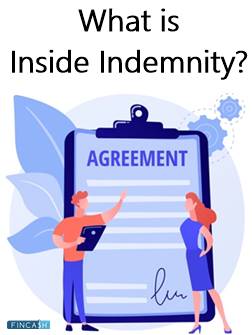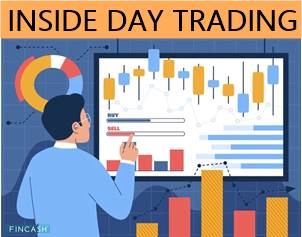
Table of Contents
Who is an Insider?
An insider is defined as a director, senior officer, entity, or individual who owns more than 10% of the voting shares of a publicly traded corporation. Based on the insider information, they have the chance to trade the company stocks.
They must adhere to stringent disclosure standards when selling or buying. The Securities and Exchange Board of India (SEBI) supervises and regulates the Indian Capital and securities Market, protecting investors' interests.
According to the SEBI, an insider is considered as one of the following individuals or companies:
- Insiders or close relatives of those who are involved
- Members of the board of directors of asset management firms or trustees of Mutual Fund companies
- A public financial organization's board member or chairman
- A subsidiary or holding company that is directly linked to the Parent Company
- A high-ranking official from the parent company's holding corporation
- Officials employed by a clearinghouse or a stock exchange
Hence, anyone who falls into one of these categories should refrain from trading in the company's stock to avoid penalties and punishments.
Types of Insiders
Most insiders fall into one of the below categories:
Primary Insider
A Primary Insider is a member of the board of directors or management of a publicly traded corporation. Employees, large shareholders, and company service providers are often included in this category.
Temporary Insiders
These are professionals who are not affiliated with the company that generates insider information but require access to it as part of their service. Auditors, lawyers, investment bankers, outside counsellors, accountants, etc., are a few people who come under temporary insiders.
Talk to our investment specialist
Secondary Insiders
These are individuals who get insider information directly or indirectly from an insider. A person is not considered a secondary insider simply because they are hired to trade securities. They must have inside information and know that it is from an inside source.
Accidental Insider
An accidental insider is a person who didn't have access to inside knowledge or was tipped by someone who did but learned inside information as a result of unusual circumstances. Such an insider might not even realize they are talking about confidential information. A few examples include overhearing a phone Call in the elevator, finding confidential documents in the bin, and receiving emails to wrong IDs.
What is Insider Trading?
Insider Trading is the unlawful trading of a company's Bonds, stocks, and securities based on confidential information kept hidden from the general public. This practice is unjust and illegal, and it must be avoided at all costs.
Insider trading offences can also include "tipping" such information, stock trading by the person "tipped," and stock trading by people who misuse the information. For example, suppose a corporate manager informs her father about an undisclosed business agreement. He then informs his friends, who then purchase the company's stock (because they know the company's share price will rise once the news is made public).
The manager, her father, and his associates could then face charges of violating insider trading laws. Due to this, individual investors who have spent time and effort selecting companies for investment may end up losing the trade. Investors lose faith in the stock market if they believe insider trading is prevalent. More people will participate in trade if insider trading is severely punished.
Thus, insider trading lawsuits could be filed against a trader who has preemptive access to this type of information. Yet, despite popular belief, not all insider trading is prohibited. To be on the safe side of the law, one should examine all the facts that distinguish between lawful and unlawful insider trading.
What is Considered as Insider Information?
Insider information includes the following items:
- Significant changes in the company's policy or operational strategies
- Takeovers or mergers that are planned shortly
- Intended dividend declaration
- Securities repurchases or issuances
- Financial reports that are published regularly
What are SEBI's Insider Trading Restrictions?
Insider trading erodes investor confidence in the securities markets' fairness and integrity. As a result, SEBI has prioritised discovering and prosecuting insider trading offences. Here are the three restrictions imposed by SEBI:
- The first restriction on insider trading states that no insider shall reveal any Unpublished Price Sensitive Information (UPSI) about a corporation to anyone. But, it is permissible if they are made for legitimate purposes, the execution of obligations, or the fulfilment of legal requirements.
- The second insider trading prohibition is that anyone, insider or outsider, cannot receive any UPSI relating to an organization.
- The third and most vital rule is that anyone who has a company's UPSI can't buy or sell its stock on the stock market.
What is the Penalty for Insider Trading?
A violation of Section 12A(d) of the SEBI Act 1992 carries a penalty of up to Rs. 25 billion or three times the profit made on the deal, whichever is higher. Insider trading is punishable by up to five years in prison and a fine of up to Rs. 25 lakhs under the Companies Act 2013.
Conclusion
The stock market's fundamental rule is that no trader should have an undue edge over the rest of the market players. Although there are excellent regulations to prevent insider trading, improving them to boost transparency and Accountability is essential. Being an insider usually pays off, but misusing that information might lead to unforeseen consequences.
All efforts have been made to ensure the information provided here is accurate. However, no guarantees are made regarding correctness of data. Please verify with scheme information document before making any investment.







